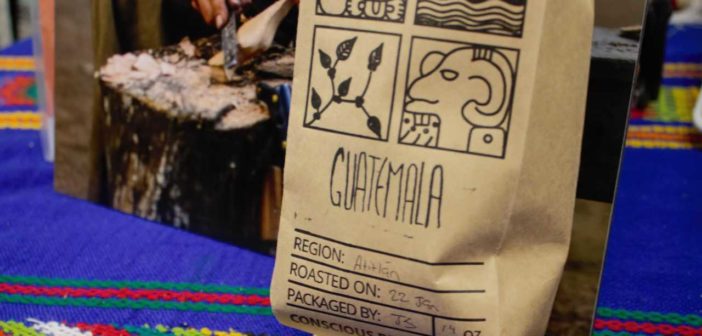Climate change reached a tipping point in 2018, from staggering natural disasters to unprecedented political attention.
Hurricane Florence and the Woolsey and Camp California Wildfires helped thrust climate change issues into the media like never before.
As these issues continue to circulate, this fall will welcome the 2019 UN Climate Summit on Sep. 23 in New York City and COP25 Nov. 11-22 at an undetermined location. Both of these will be follow-up meetings to the Paris Climate Agreement drafted by the UNFCC in 2015, a gathering of international leaders to address the growing threat of climate change.
Commissioned by the UN, the Intergovernmental Panel on Climate Change released a new report in October. The report warns on the dangers of global temperature rise any more than 1.5 degrees Celsius (2.7 degrees Fahrenheit). The panel warned that global temperatures have already risen 1 degree Celsius since pre-industrial times. At this rate, we will likely reach 1.5 degrees Celsius between 2030 and 2052.
The dangers associated with rising more than 1.5 degrees C include higher temperatures in the ocean, tropical and coastal regions and densely populated cities. Additionally, higher levels of precipitation and drought can be expected across the globe, as well as extreme weather events, heat waves and coastal loss.
The U.N. Secretary-General Antonio Guterres will be hosting the summit and is urging global leaders to attend. When asked about climate change, Guterres said “We all know the massive scale of the climate challenge we face… and we all know we are not on track.”
He hopes to raise funding to assist poor nations with adapting to climate-related threats. The current agreement established a $100 billion fund to assist developing nations in these efforts. These include adaptation and prevention, and relocation and assistance of climate refugees. The Summit will help establish transparency in both the collection and distribution of those funds.
Additionally, he hopes the summit will help encourage political climate action and will involve a variety of different non-state actors like cities, corporations and youth organizations.
Here on campus, Enactus is a student-led organization dedicated to “[Making] a powerful impact on the world” through small business and global entrepreneurship. One of their biggest projects is T.H.E. Path Coffee, developed in partnership with coffee growers in Guatemala.
Coffee is one of the industries expected to take the largest hit as a result of climate change, and Enactus has already begun to take note of the changes occurring within their partners’ communities.
Erin Bergren, professor of environmental studies who traveled with Enactus this past D-term, spoke with the farmers in Guatemala. “They noticed the sun is more intense, the heat is more intense and that affects the coffee drying process.”
Bergen added that to avoid the coffee from “burning,” farmers must now pay attention to cloud cover and sunlight intensity.
Coffee Rust is another problem plaguing the growers in Guatemala. The disease’s success is dependent on higher temperature and humidity, and both are exacerbated by climate change. This an increasing concern for farmers who use conservation practices to test out more rust-resistant trees as a way to combat the fungus.
Matthew Krystal, professor of anthropology and sociology, has been working with these communities since 2005.
“Our partners attribute this to rain not coming when it needed to come and also coming at times when it shouldn’t have been there,” said Krystal.
According to Krystal, previously the region had marked rainy and dry seasons, which now are unreliable. Rain often falls during the arid season when coffee should be drying. Then it doesn’t fall at times during the wet season when it is crucial for healthy coffee tree growth.
All of these trends negatively impact the quality of the coffee, which affects the price growers can get for it. That means more work overall. Enactus is prepared for potential supply issues.
“I guess we offer verbal support [but what we mostly witness]is how active our partners are in responding to these things… they are recognizing this is happening and taking steps to deal with it, and that’s in some ways more instructive for us than what we can offer them,” said Krystal.
“For our students who come from a society that sends a lot of messages and communicates a lot of messages that, ‘hey climate change is not a problem and if it is a problem that’s really too bad nothing can be done about it,’ to see folks really recognize it as a problem and have it impact their lives in ways that are indisputable, and then to take steps to deal with it are all things that are useful to us as wealthy people from a wealthy country to see and encounter and experience,” he said.
The U.S. withdrew from the Paris Climate Agreement in 2017 after President Trump insisted the U.S. had to pay unfair financial responsibilities compared to other countries. This led to international criticism.
The agreement laid out the financial commitments for larger, wealthier and higher emitting developed nations based on a polluter-pays model. Countries historically responsible for higher greenhouse gas emission must contribute more toward the fund. Then, nations like Guatemala could receive some of those funds.
Guatemala emits less than 0.1 percent of all global emissions. In their climate action plan submitted to the UN prior to the Paris Climate Agreement, they committed to reducing global emission by 11 percent less than 2005 levels by 2030. They have expressed their willingness to cut emissions by 22 percent with financial support from wealthier countries.
In 2020, all signatory nations will submit updated climate action plans to the UN. The summits will provide an opportunity for participating parties to strengthen those plans via international cooperation.
Enactus has free coffee hours Tuesdays from 12-2 p.m. in the SOA house and then Fridays from 9-11 a.m. in the School of Business and Entrepreneurship. You can also purchase bags and compostable K-cups at the Boilerhouse.

